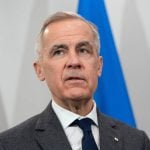Brasilia | Reuters — Brazil could double spending on subsidized farm insurance in 2020 and may expand subsidized loans, the country’s agriculture policy secretary said on Thursday, even though the new government’s economic team has pledged to cut spending.
The negotiations on next year’s farm subsidies highlight the powerful agribusiness lobby’s struggle to preserve benefits at a time when Economy Minister Paulo Guedes is pushing for belt-tightening efforts including cutting state-subsidized loans in favour of lending on the open market.
State-run Banco do Brasil SA, responsible for handing out many of the subsidized farm loans, favours cutting that lending and offering favourable insurance instead, chief executive Rubem Novaes said last month.
Read Also

U.S. grains: Corn drops to 12-week low on report of massive stocks, record harvest
Chicago | Reuters – U.S. corn futures plunged on Monday after the U.S. Department of Agriculture reported that U.S. farmers…
But while subsidized insurance payments are expected to rise, that will not correspond to a cut in subsidized loans for the next crop year, agriculture policy secretary Eduardo Sampaio Marques said in an interview with Reuters.
The agriculture ministry favours shifting subsidies toward insurance and away from credit in the “medium term,” and the economic team has agreed to a gradual transition, Sampaio said
“There will not be a rupture, but movement in the sense that there will be more rationalization and modernization with less state intervention,” he said.
For this year, the hope is that subsidized farm loans of 194 billion reais (C$69 billion) in the last national harvest plan will be maintained or increased for the next crop year, he said.
The government could increase its budget to subsidize premiums for insurance against potential harvest losses to one billion reais, Sampaio said.
That compares to a 2019 budget of 440 million reais, which subsidizes insurance to cover an estimated 6.8 million hectares, or just under 10 per cent of Brazil’s total planted area, according to government data.
The subsidies are still being negotiated by the agriculture ministry, economy ministry and central bank, and specific numbers have yet to be agreed to, Sampaio said.
The government has also agreed that subsidized financing for small- and medium-sized farms will be maintained, while large producers will be gradually weaned off subsidies, Sampaio said.
Brazil’s record-low benchmark interest rate would allow the government to hand out more subsidized loans at similar rates while spending the same amount of money, he said.
— Reporting for Reuters by Jake Spring.
















